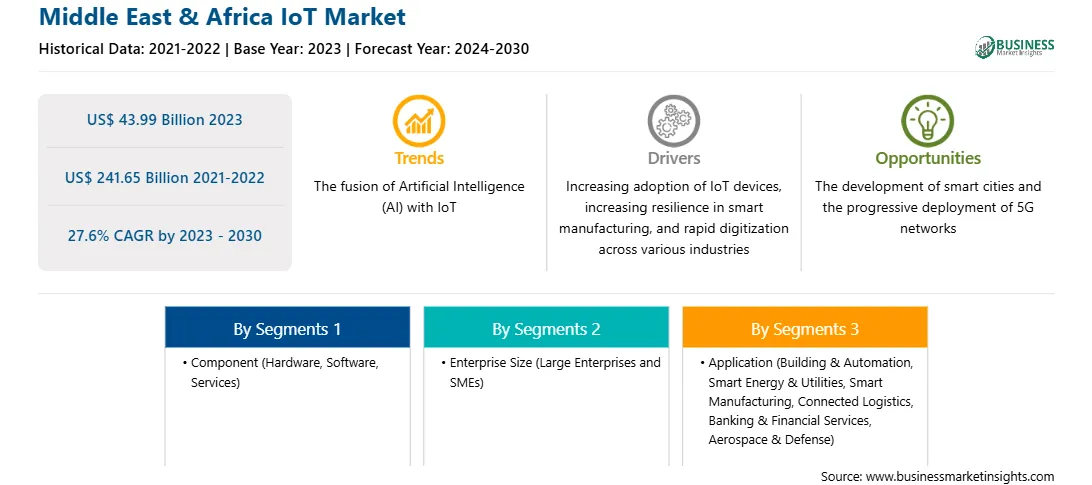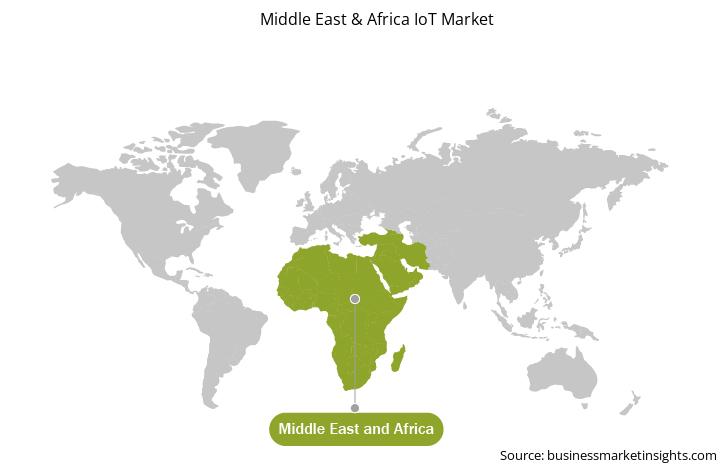Automotive is one of the largest sectors in terms of IoT implementation that supports various applications such as self-driving cars, security features, data analytics, in-vehicle infotainment, predictive maintenance, real-time monitoring, and dashboard. Moreover, the high level of competition in the automotive sector is propelling companies to adopt IoT, AI, and other advanced technologies. Audi, BMW, General Motors, and Mercedes-Benz are a few major automakers offering advanced infotainment systems for cars integrated with various technologies. Moreover, the growing demand for connected vehicles and rising investments in autonomous cars boost the adoption of IoT and efficient communication technologies, such as 4G and 5G. For instance, in April 2021, Vodafone Idea announced the launch of its integrated IoT solution for the automotive sector. With this product launch, the company further strengthened its IoT portfolio. Automotive systems that can be enhanced with IoT include logistics management, fleet management, telematics, sensor sharing, advanced driver assistance systems, infotainment, and autonomous driving. Furthermore, due to the increasing demand for dynamic messaging, parking sensors, real-time occupancy data of parking spots, and vehicle parking spots, several government agencies are promoting smart city programs and implementing smart parking to ensure smooth traffic in the city. Therefore, the rise in the implementation of IoT in the automotive sector is driving the IoT software market.
The IoT market in the MEA is segmented into Saudi Arabia, the UAE, South Africa, and the Rest of MEA. The Middle East is a dynamic and rapidly developing region that offers massive opportunities for investors and businesses. IoT adoption is already an integral part of the digital transformation of businesses in the region. IoT helps them achieve various objectives by improving asset utilization, managing risks, and creating entirely new business models. The increasing use of smartphones, the growing population of young adults in Gulf Cooperation Council (GCC) countries, and government initiatives for digital transformation to drive economic growth are a few major factors propelling the IoT market growth in the region. Retail, manufacturing, and automotive industries use IoT technologies to differentiate their existing products or services from the competition and provide enhanced customer experiences.
Strategic insights for the Middle East & Africa IoT provides data-driven analysis of the industry landscape, including current trends, key players, and regional nuances. These insights offer actionable recommendations, enabling readers to differentiate themselves from competitors by identifying untapped segments or developing unique value propositions. Leveraging data analytics, these insights help industry players anticipate the market shifts, whether investors, manufacturers, or other stakeholders. A future-oriented perspective is essential, helping stakeholders anticipate market shifts and position themselves for long-term success in this dynamic region. Ultimately, effective strategic insights empower readers to make informed decisions that drive profitability and achieve their business objectives within the market. The geographic scope of the Middle East & Africa IoT refers to the specific areas in which a business operates and competes. Understanding local distinctions, such as diverse consumer preferences (e.g., demand for specific plug types or battery backup durations), varying economic conditions, and regulatory environments, is crucial for tailoring strategies to specific markets. Businesses can expand their reach by identifying underserved areas or adapting their offerings to meet local demands. A clear market focus allows for more effective resource allocation, targeted marketing campaigns, and better positioning against local competitors, ultimately driving growth in those targeted areas.Middle East & Africa IoT Strategic Insights

Middle East & Africa IoT Report Scope
Report Attribute
Details
Market size in 2023
US$ 43.99 Billion
Market Size by 2030
US$ 241.65 Billion
Global CAGR (2023 - 2030)
27.6%
Historical Data
2021-2022
Forecast period
2024-2030
Segments Covered
By Component
By Enterprise Size
By Application
Regions and Countries Covered
Middle East and Africa
Market leaders and key company profiles
Middle East & Africa IoT Regional Insights

Middle East & Africa IoT Market Segmentation
The Middle East & Africa IoT market is segmented based on component, enterprise size, application, and country. Based on component, the Middle East & Africa IoT market is segmented into hardware, software, and services. The hardware segment held the largest market share in 2023. Furthermore, software is segmented into device management, application management, data management, and network management.
Based on enterprise size, the Middle East & Africa IoT market is bifurcated into large enterprises and SMEs. The large enterprises segment held a larger market share in 2023.
Based on application, the Middle East & Africa IoT market is segmented into building & automation, smart energy & utilities, smart manufacturing, connected logistics, banking & financial services, aerospace & defense, and others. The smart manufacturing segment held the largest market share in 2023.
Based on country, the Middle East & Africa IoT market is segmented into Saudi Arabia, South Africa, the UAE, and the Rest of Middle East & Africa. Saudi Arabia dominated the Middle East & Africa IoT market share in 2023.
Amazon Web Services Inc.; Cisco Systems Inc.; Google LLC; Software AG; International Business Machines Corp; Intel Corp; Microsoft Corp; Oracle Corp; Siemens AG; and SAP SE are the leading companies operating in the Middle East & Africa IoT market.
The Middle East & Africa IoT Market is valued at US$ 43.99 Billion in 2023, it is projected to reach US$ 241.65 Billion by 2030.
As per our report Middle East & Africa IoT Market, the market size is valued at US$ 43.99 Billion in 2023, projecting it to reach US$ 241.65 Billion by 2030. This translates to a CAGR of approximately 27.6% during the forecast period.
The Middle East & Africa IoT Market report typically cover these key segments-
The historic period, base year, and forecast period can vary slightly depending on the specific market research report. However, for the Middle East & Africa IoT Market report:
The Middle East & Africa IoT Market is populated by several key players, each contributing to its growth and innovation. Some of the major players include:
The Middle East & Africa IoT Market report is valuable for diverse stakeholders, including:
Essentially, anyone involved in or considering involvement in the Middle East & Africa IoT Market value chain can benefit from the information contained in a comprehensive market report.